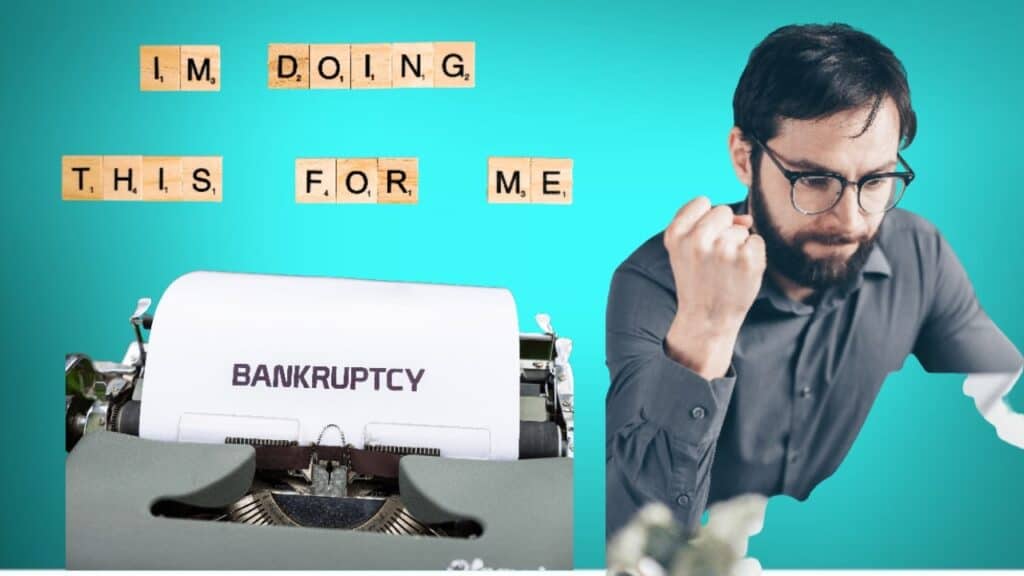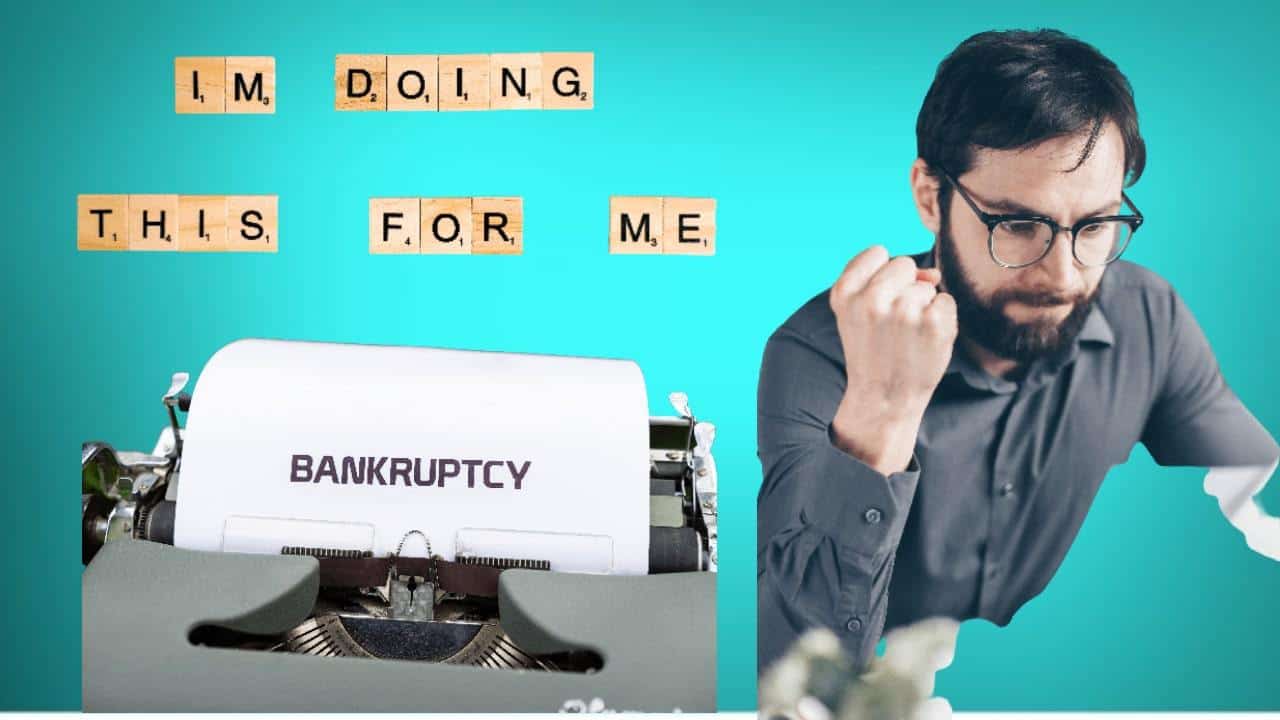what does a licensed insolvency trustee do
The Ira Smith Trustee Team is absolutely operational and Ira, in addition to Brandon Smith, is readily available for a telephone consultation or video meeting. We hope that you and your family are safe and healthy.
What does a licensed insolvency trustee do?: What is a licensed insolvency trustee?
Frequently I am asked what does a licensed insolvency trustee do? How is it different from a bankruptcy trustee? The answer is it isn’t different. The term bankruptcy trustee is dated.
The new title is Licensed Insolvency Trustee. The Office of the Superintendent of Bankruptcy (OSB) changed it in 2015. Among the reasons for the name change were the submissions made by the Canadian Association of Insolvency and Restructuring Professionals. As the name suggests, a licensed insolvency trustee can offer a wider array of financial solutions.
This Brandon’s Blog is intended to describe what does a licensed insolvency trustee do and to provide useful information for you to help you better understand the debt relief advice that a Trustee provides to people, entrepreneurs, and their companies experiencing financial trouble.
What does a licensed insolvency trustee do?: Licensed insolvency trustees are professionals who are federally regulated
There are many terms in the insolvency field that the average person isn’t familiar with, which is why it’s important to understand what the licensed insolvency trustee does. Trustees are licensed and supervised by the federal government through the OSB to act as personal and corporate insolvency administrators. This means they act to protect the interests of all involved parties while assisting debtors, acting as a debt counselor, a restructuring advisor, and if required, overseeing the bankruptcy process.
Licensed insolvency trustees are professionals with a background in finance, law, accounting, and insolvency. They assist businesses and individuals who are struggling financially. Typically, licensed insolvency trustees meet with clients to discuss their financial situation and offer advice and recommendations to help get the client out of a financial bind.

What does a licensed insolvency trustee do?: The credit counselor or a debt management program as an alternative
Financial guidance is offered by licensed insolvency trustees, credit counselors, and debt management programs. These services differ greatly from each other.
A licensed insolvency trustee can simply offer you financial advice and help you plan on how to repay your debts if that is all you need. A trustee is also the only person who can file a bankruptcy or consumer proposal for you. A Trustee will provide you with an initial no-cost confidential consultation to see if there are alternatives to bankruptcy for you. Credit counselors, credit counselling companies, and debt management businesses can give you financial advice and information. They can help you make a budget and make plans to repay your debt.
What does a licensed insolvency trustee do when you have debt but do not need to resort to one of the insolvency processes? During the free initial consultation, if a consumer proposal or bankruptcy is not right for you, the Trustee will refer you to see a community organization-based credit counselor who will be able to help you and also will not charge you a fee.
What does a licensed insolvency trustee do?: The Consumer Proposal Process
Consumer proposals to creditors are made by debtors and are legally binding agreements. You group all your debts into a consumer proposal to creditors. This is a debt solution to avoid bankruptcy. Your creditors agree to accept a reduced amount as full payment. The consumer proposal is a legal alternative to bankruptcy. Only a licensed insolvency trustee can administer it.
The only consumer insolvency restructuring proceeding regulated by the Canadian government is referred to as a consumer proposal (which is the only one of the consumer insolvency government-regulated insolvency proceedings that allow debt consolidation, debt settlement, or debt adjustment). In the end, your creditors write off the remainder of your debt, and you are released from those legal obligations.
If you owe $250,000 or less (not including any personal mortgages) and are insolvent, then you can qualify for a consumer proposal. Month-to-month payments over no more than 60 months need to be made to the Trustee. You pay just a part (generally 25%) of your total financial obligations gradually to the Trustee and when ended up, the rest of the balance owing to your unsecured creditors is written off.

What does a licensed insolvency trustee do?: The bankruptcy process
Canadian bankruptcy is a process whereby a person or company can declare itself bankrupt. The bankruptcy process starts in the provincial or territorial office of the OSB where the debtor is located.
In Canada, personal bankruptcy entails a number of stages. The debtor must be insolvent, meaning that they cannot repay their debts with the assets that they own or the income they earn. With the help of the Trustee, they must file statements of affairs and a statement of current income and expenses. There are other obligations on an undischarged bankrupt but that is not the purpose of this blog.
Upon receiving their discharge from bankruptcy, that is the moment that the debtor’s debts are forgiven or discharged.
What does a licensed insolvency trustee do?: The assignment of assets
When people file assignments in bankruptcy, what does a licensed insolvency trustee do with the assets? Any assets not charged by a secured creditor are available for the Trustee to take possession of. Those assets are usually things like real estate, cash, and vehicles. When assets are seized in bankruptcy the proceedings usually lead to them being sold and the proceeds are shared with creditors.
This is the main difference between a consumer proposal and bankruptcy. In a consumer proposal, there is no assignment of assets to the Trustee like in a bankruptcy. The debtor in a consumer proposal keeps their assets and makes monthly payments. It is the total of the monthly payments that the Trustee distributes to the creditors in a consumer proposal. In a bankruptcy, it is the proceeds of the asset sales.

What does a licensed insolvency trustee do?: Opting for a consumer proposal
Many people I deal with have significant debt problems. However, a consumer proposal may not be the best option for everyone. Opting for a consumer proposal means not only do you qualify under Canadian insolvency legislation to use one. It also means that it is a better alternative for you than personal bankruptcy. It means that you are able to restructure and not need bankruptcy services from a licensed insolvency trustee.
A consumer proposal is a way to get out of debt without declaring bankruptcy. If you are having trouble paying back credit card bills, medical bills, rent payments, and you don’t want to declare bankruptcy, a consumer proposal might be right for you.
Before opting for a consumer proposal, you must meet the following requirements:
- Total liabilities of $250,000 or less.
- Monthly payments can be made to your creditors, but not 100% of the total amount due.
- You cannot repay all of your debts with the money you have.
- If you work and are able to budget, you can pay your budgeted monthly expenses and have money left over for regular monthly payments to the Trustee. Under a debt management plan, your creditors will agree to write off a portion of your debt if you pay a fraction of what you owe.
- You may also be lucky enough to have a relative willing to put up a lump sum of money that represents a fraction of what you owe so that your unsecured creditors will accept it instead of all that you owe. This means that you can be in and out of your consumer proposal fairly quickly if you are in this fortunate position.
To summarize, consumer proposals are best suited to people with a sufficient disposable income. Consumer proposals offer the best way of restructuring, eliminating your unsecured debts, and avoiding bankruptcy.
There are restructuring provisions in the Bankruptcy and Insolvency Act (Canada) for people who owe more than they can discharge in a consumer proposal or in business insolvency. Despite some differences in the rules, the overall theme of restructuring remains the same.
What does a licensed insolvency trustee do?: Going the bankruptcy route
Given the above, what can a person do to eliminate their unsecured debt if they cannot qualify for filing a consumer proposal as an alternative to bankruptcy? Going the bankruptcy route will probably make the most sense.
Bankruptcy is when a person cannot pay their bills. They file Canadian personal bankruptcy to get a fresh start. Filing a consumer bankruptcy must be your last resort after exhausting all other options to avoid bankruptcy. Bankruptcy means debts are written off when the person receives their absolute discharge from bankruptcy. The bankruptcy law in Canada protects people from dishonest, unfair, or abusive practices by creditors.
However, in return for getting the relief of eliminating debts through bankruptcy, an undischarged bankrupt also has certain responsibilities.
These include:
- Making full disclosure to the Trustee.
- With the assistance of the Trustee, preparing the sworn Statement of Affairs and Statement of Income and Expenses.
- Delivering all assets and properties to the Trustee to be sold (other than for certain provincial exemptions).
- Attending the First Meeting of Creditors if one needs to be held.
- Attending two financial counselling sessions with the Trustee or a member of the Trustee’s staff. Attendance at credit counseling sessions is also the case in a consumer proposal.
- Providing monthly statements of income and expenses while an undischarged bankrupt.
- Generally providing any assistance requested by the Trustee.
In providing debt-relief options, the Canadian bankruptcy system is designed to provide fairness to both debtors and creditors while allowing the person to financially rehabilitate themselves.

What does a licensed insolvency trustee do?: Final thoughts
What does a licensed insolvency trustee do? Licensed insolvency trustees are insolvency practitioners. They are debt professionals who deal with and provide services to individuals and businesses with debt problems that are experiencing financial issues that can only be resolved through an insolvency process. Licensed insolvency trustees are professionals, offering affordable solutions to financial struggles.
I hope you found this what does a licensed insolvency trustee do Brandon’s Blog about helpful. Sometimes things are too far gone and more drastic and immediate triage action is required.
Do you have too much debt? Are you in need of financial restructuring? The financial restructuring process is complex. The Ira Smith Team understands how to do a complex restructuring. However, more importantly, we understand the needs of the entrepreneur or the person who has too much personal debt. You are worried because you are facing significant financial challenges.
It is not your fault that you are in this situation. You have been only shown the old ways that do not work anymore. The Ira Smith Team uses new modern ways to get you out of your debt troubles while avoiding bankruptcy. We can get you debt relief freedom.
The stress placed upon you is huge. We understand your pain points. We look at your entire situation and devise a strategy that is as unique as you and your problems; financial and emotional. The way we take the load off of your shoulders and devise a debt settlement plan, we know that we can help you.
We know that people facing financial problems need a realistic lifeline. There is no “one solution fits all” approach with the Ira Smith Team. That is why we can develop a restructuring process as unique as the financial problems and pain you are facing. If any of this sounds familiar to you and you are serious in finding a solution, contact the Ira Smith Trustee & Receiver Inc. team today.
Call us now for a free consultation.
We will get you or your company back on the road to healthy stress-free operations and recover from the pain points in your life, Starting Over, Starting Now.
The Ira Smith Trustee Team is absolutely operational and Ira, in addition to Brandon Smith, is readily available for a telephone consultation or video meeting. We hope that you and your family are safe and healthy.



